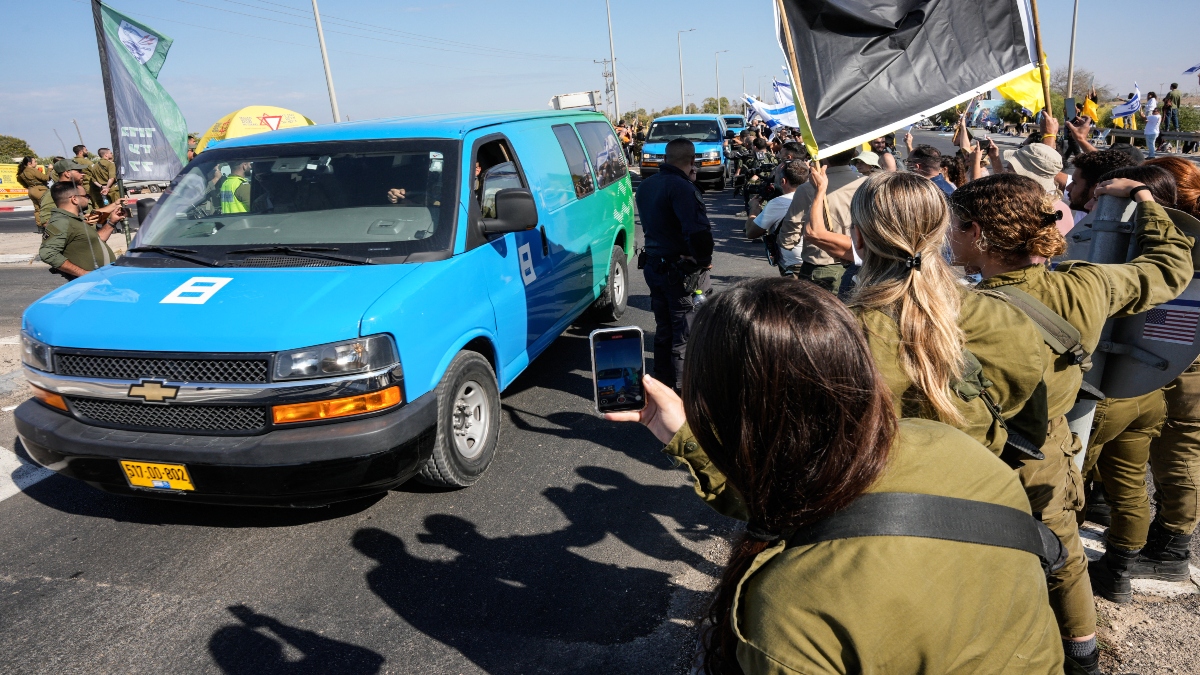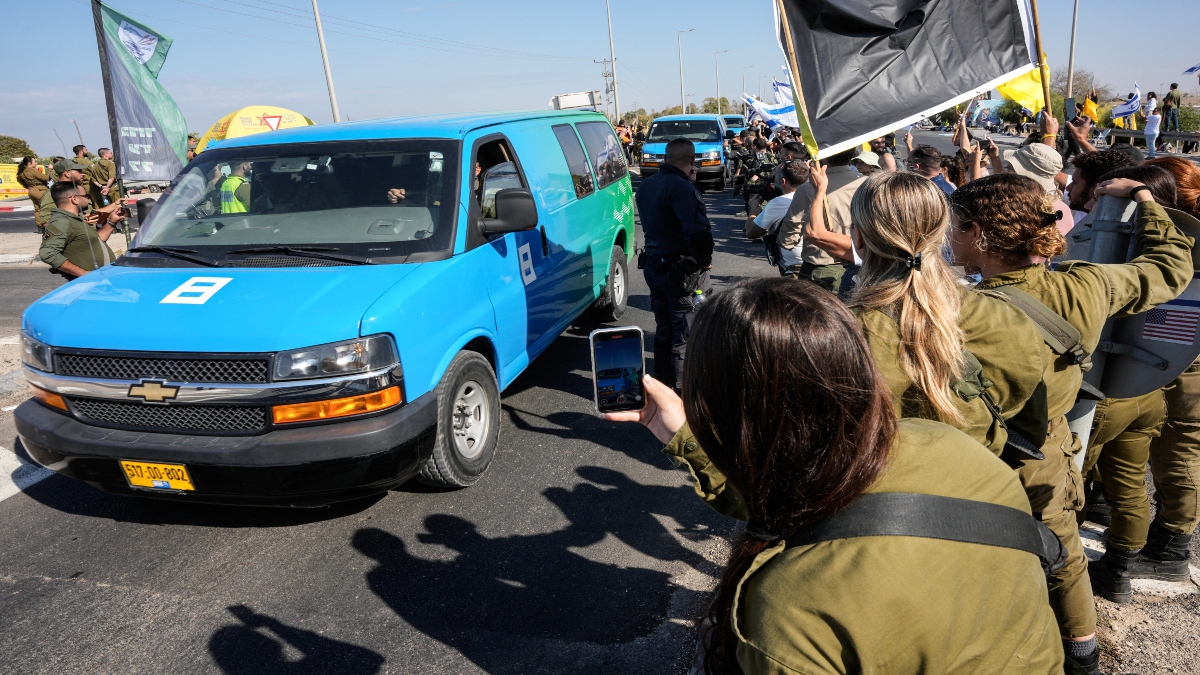Israel breathes a sigh of relief as all hostages held in Gaza return home after enduring 737 days of harrowing captivity.
On October 7, 2023, Hamas militants attacked Israel and abducted 251 people, taking them across the border into Gaza. Over the past two years, some hostages have been freed, while many others tragically lost their lives under harsh conditions.
Now, after more than two years, the remaining 20 living hostages finally came home, while 28 bodies will be repatriated, under the first phase of US President Donald Trump’s 20-point peace plan.
Medical teams across Israel are gearing up to welcome them, ensuring both their physical and psychological needs are met.
Here’s a closer look at Israel’s homecoming units
According to Sky News, Director of Nursing Dr Michal Steinman said each hostage, all of whom are men, will have a private room. The rooms will include gift baskets with items like a teddy bear, blanket, slippers, and a phone charger to help bring comfort after their long captivity.
“The teddy is there to help bring comfort to the freed captives. Our research says each one of us has a child inside,” Dr Steinman explained. “We need something to pet and feel soft, and reassure them after the lack of senses for such a long time.”
Phones will be provided by the army, and families are encouraged to bring personal items from home to make the space feel familiar as the hostages slowly adjust to freedom.
The men will also have access to private living areas where they can spend time with loved ones or meet visiting dignitaries. Families will be accommodated in nearby rooms, with dedicated spaces for the children of the hostages when they visit.
Medical equipment will be kept in special treatment rooms, designed to feel more like living spaces than typical hospital wards, the outlet reported.
Major Israeli hospitals, including Sheba Medical Center in Tel Hashomer, Tel Aviv Sourasky (Ichilov) Medical Center, and Beilinson Medical Center in Petah Tikva, have been assigned to receive the freed hostages.
If urgent care is needed, the hostages may be transferred to Soroka University Medical Centre in Beersheba or Barzilai Medical Centre in Ashkelon, which are closer to Gaza.
‘Will be taught how to eat again’
Once the freed hostages arrive at Israeli hospitals, they’ll first undergo thorough medical tests to assess their physical conditions, The Jerusalem Post reported.
Health officials say most are expected to suffer from severe malnutrition and deficiencies in essential salts and vitamins, putting them at risk of “refeeding syndrome”, a potentially fatal condition caused by eating too much too soon after prolonged starvation.
According to The Times of Israel, the Health Ministry had even asked the Red Cross weeks ago to ensure Hamas doesn’t overfeed the hostages before their release, warning that it could mask the effects of long-term deprivation and trigger health complications.
“We have to be extremely careful because we are wary of overfeeding,” Dr Steinman told The Telegraph. “In the past, some of them have so completely lost their appetite that we have had to work with them in order for them to feel hungry again.”
The Health Ministry said that the treatment protocols, led by Dr Hagar Mizrahi, Head of the Medical Division, are based on “lessons learned from previous releases and rescue operations.”
As per The Jerusalem Post, doctors plan to start treatment slowly, beginning with small portions of protein-rich liquid meals that are low in carbohydrates to prevent a dangerous spike in insulin.
Phosphorus, potassium, and magnesium supplements will be given intravenously or orally, while vital signs such as heart rate, blood pressure, and kidney function are carefully monitored.
Recovery will progress gradually, sometimes over several days, depending on each person’s condition. Only after their mineral balance stabilises will solid foods be reintroduced.
Battling psychological scars
The psychological wounds are likely to be the hardest to heal.
After nearly two years of captivity marked by fear, isolation, and uncertainty, many of the freed hostages are expected to grapple with post-traumatic stress disorder (PTSD), anxiety, depression, sleep issues, and even survivor’s guilt.
Dr Steinman shared some of the early emotional struggles faced by previously released captives. Speaking to Sky News, she recalled one hostage who described the confusion of waking up free for the first time.
“When I opened my eyes,” the hostage told her, “I thought I was still in a dream because there’s no way I opened my eyes and I’m not in the tunnel. I thought, ‘it’s a dream inside a dream.’”
“They can’t believe, in those first few moments, that they’re no longer there,” Dr Steinman explained.
She also recounted another instance where a freed hostage froze in front of a refrigerator, overwhelmed by the colours inside. “I told him, ‘It’s hard for you to choose?’” she said. “And he replied, ‘I’m just amazed at the colours. All I’ve seen for 100 days is black, white, and brown.’”
According to Israel’s Health Ministry, each returnee will now undergo a psychiatric evaluation within 24 hours of hospital admission. Any unusual mental symptoms will be closely assessed to rule out physical causes that might appear as psychological distress.
A psychiatrist will then oversee the recovery process, offering trauma-sensitive care, guiding medical teams, coordinating with security personnel, and supporting both the survivors and their families as they begin their long journey toward healing.
With input from agencies


)

)
)
)
)
)
)
)
)



